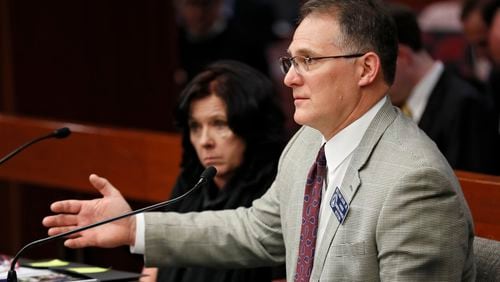A bill that would enshrine the ability of faith-based adoption agencies to refuse to do business with same-sex couples moved closer Thursday to a vote in the Georgia Senate.
A Senate subcommittee heard an hour and a half of testimony from adoption agencies, religious groups and gay-rights advocates, making the legislation eligible for consideration by the full Senate Judiciary Committee.
Most senators on the subcommittee supported the measure, Senate Bill 375, saying the government shouldn't force religious adoption agencies to violate their beliefs.
Opponents of the legislation say it's discriminatory and could harm Georgia's business reputation, especially as Amazon is considering where to build its second headquarters.
State Sen. William Ligon, the bill's sponsor, said the religious beliefs of adoption agencies need to be protected by state law, especially after the U.S. Supreme Court made gay marriage legal in 2015.
“There are going to be differing views of marriage, and some might not agree with it out of religious motivations,” said Ligon, R-Brunswick. “We’re going to have to find ways, if we’re going to live in a pluralistic society, where our different views can be honored.”
But others said the legislation would create divisions at the expense of children in need of adoption by loving parents.
"You can't claim to be wanting to place more children if you're going to restrict adoption and eliminate a large population of people who might adopt them or foster them," said Beth LaRocca-Pitts, senior pastor for Saint Mark United methodist Church in Atlanta. "The sheer fact that someone is gay should not be a prohibition on someone adopting a child."
Dave Baker, executive director for the Faith & Freedom Coalition of Georgia, said gay couples can work with adoption agencies that align with their beliefs.
“It’s not asking too much, therefore, to allow a relative handful of faith-based agencies to adhere to their sincerely held religious beliefs in placing children just with traditional families,” Baker said.
Now that the legislation has gone through a public hearing, the Senate Judiciary Committee could vote on it at any time.








